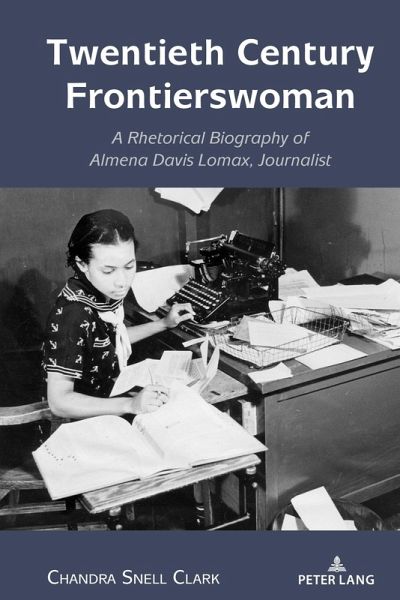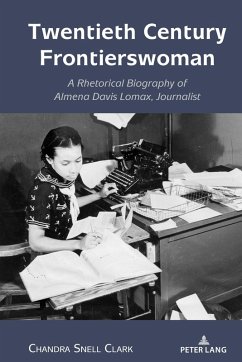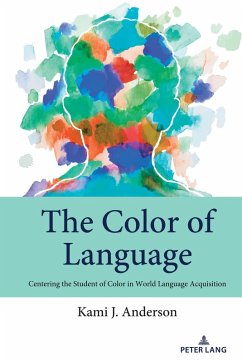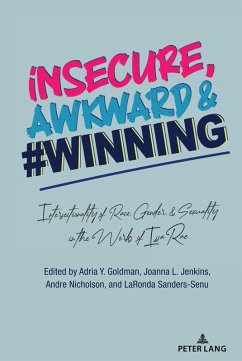
Twentieth Century Frontierswoman (eBook, PDF)
A Rhetorical Biography of Almena Davis Lomax, Journalist
Versandkostenfrei!
Sofort per Download lieferbar
Statt: 111,95 €**
35,95 €
inkl. MwSt.
**Preis der gedruckten Ausgabe (Gebundenes Buch)
Alle Infos zum eBook verschenkenWeitere Ausgaben:

PAYBACK Punkte
18 °P sammeln!
This rhetorical biography illustrates the manner in which African American woman newspaper publisher and journalist Almena Davis Lomax sought to persuade her readers of her civil rights vision-through her Los Angeles Tribune editorials, columns, and other writings-from the 1940s through the mid-1970s, a period that witnessed phenomenal change in the area of civil rights for African Americans and other oppressed groups in the United States.While African American women journalists' contributions to the United States' long civil rights struggle via their writings and speeches-particularly those o...
This rhetorical biography illustrates the manner in which African American woman newspaper publisher and journalist Almena Davis Lomax sought to persuade her readers of her civil rights vision-through her Los Angeles Tribune editorials, columns, and other writings-from the 1940s through the mid-1970s, a period that witnessed phenomenal change in the area of civil rights for African Americans and other oppressed groups in the United States.
While African American women journalists' contributions to the United States' long civil rights struggle via their writings and speeches-particularly those of the late nineteenth, early twentieth century and late twentieth century-have received greater attention in recent years, there is yet much to glean from the Black women journalists who built upon the path set by journalist-activist foremothers such as Mara W. Stewart, Mary Ann Shadd Cary, Ida B. Wells-Barnett, Anna Julia Cooper and others-African American women journalists of the mid-twentieth century. This project contributes to the larger discourse on race, rhetoric and media by recovering the work of a little-known African American newspaper publisher and journalist of this era, thus adding to the body of knowledge concerning an often-overlooked group for not only journalism, media, communication, history, African American studies and women's studies scholars, but also for any reader with an interest in these areas.
While African American women journalists' contributions to the United States' long civil rights struggle via their writings and speeches-particularly those of the late nineteenth, early twentieth century and late twentieth century-have received greater attention in recent years, there is yet much to glean from the Black women journalists who built upon the path set by journalist-activist foremothers such as Mara W. Stewart, Mary Ann Shadd Cary, Ida B. Wells-Barnett, Anna Julia Cooper and others-African American women journalists of the mid-twentieth century. This project contributes to the larger discourse on race, rhetoric and media by recovering the work of a little-known African American newspaper publisher and journalist of this era, thus adding to the body of knowledge concerning an often-overlooked group for not only journalism, media, communication, history, African American studies and women's studies scholars, but also for any reader with an interest in these areas.
Dieser Download kann aus rechtlichen Gründen nur mit Rechnungsadresse in A, D ausgeliefert werden.













